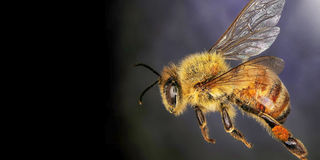Want to know if you have deadly coronavirus? Let the bees tell you

According to the researcher, the extending of the bees' straw-like tongues to drink the water “is a confirmation of a positive coronavirus test result”.
What you need to know:
- Researchers trained bees to able to detect Sars-Cov-2 in blood samples
- The researchers said the method was not cheap
A bee is known for its sweet honey and painful sting.
But a new research could make the bee popular for something else. Scientists have discovered that bees can be used to detect Covid-19 in patients.
Researchers trained bees to able to detect Sars-Cov-2 in blood samples. They discovered that the bees can detect the virus in just seconds, compared to minutes, hours or even days when one uses the antigen or PCR tests.
So as to train the bees, scientists at Wageningen University, in the bio-veterinary research laboratory, gave them sugary water “as a reward after showing them samples infected with Covid-19”.
They would not get any reward after being shown a sample which was not infected. “Consequently, the bees got used to the tradition that they eventually were able to impulsively extend their tongues to receive a reward when presented with an infected sample,” said Wim van der Poel, a professor of virology who took part in the project.
Cheaper method
"We collect normal honeybees from a beekeeper and we put the bees in harnesses. Right after presenting a positive sample. We also present them with sugar water. And the bees extend their proboscis to take the sugar water," he said.
According to the researcher, the extending of the bees' straw-like tongues to drink the water “is a confirmation of a positive coronavirus test result”.
The researchers said the method was not only cheap, but also the results are immediate and it could be useful in developing countries where tests are scarce.
But, Dirk de Graaf, a Ghent University (Belgium) professor who studies bees, animals and animal immunology said it may be hard for the technique to replace more conventional forms of Covid-19 testing in the near future.



